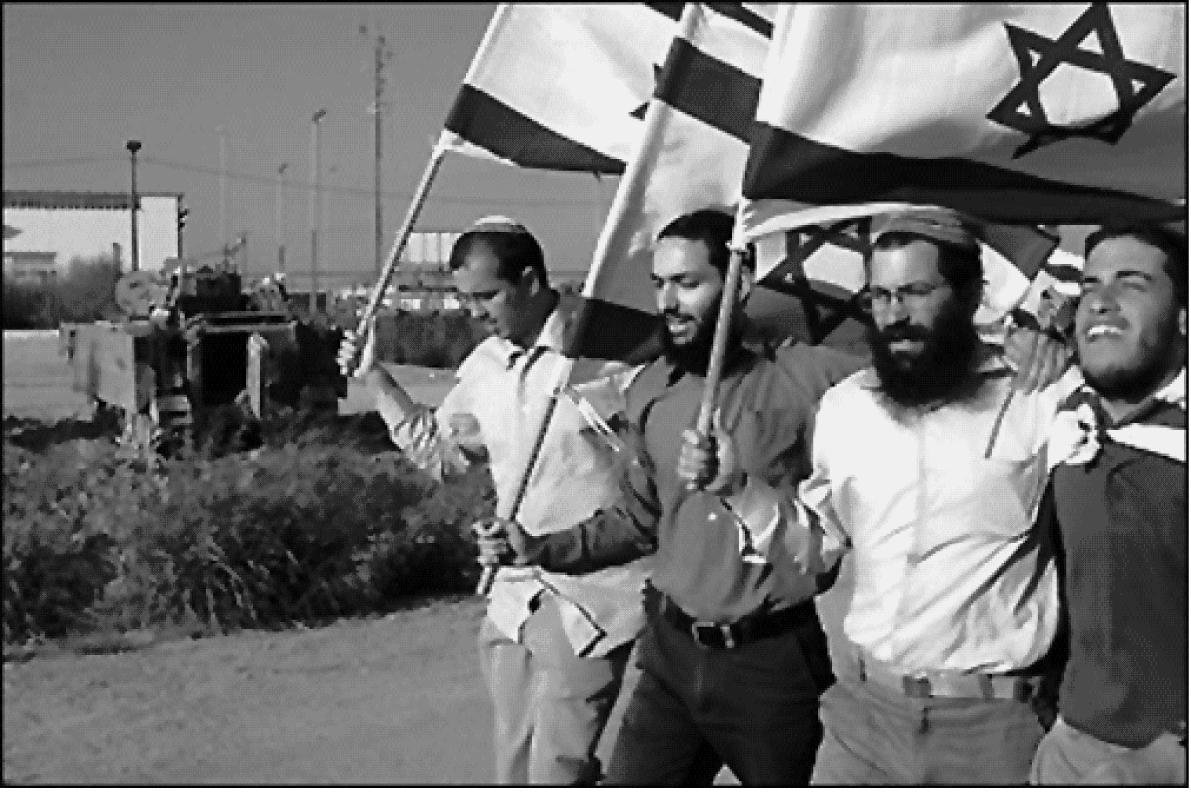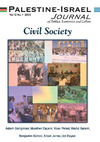Popularized in the Late 1980s
Civil society became a popular political slogan in the late 1980s. Its contemporary origin is in the critique of both state socialist and advanced capitalist regimes. Interesting to note that while popular in Eastern Europe as a critique of state socialism, after the period of transition it was used less and less, since it is more effective as a tool for criticism than for construction. After the fall of communism, the need to develop a language of democracy, political parties and the rule of law took precedence over the language of civil society. At about the same period, the term entered the mainstream of Western political discourse, with everyone using it as they saw fit. This very lability of the term accounts for its continuing use and its popular adaptation. It means many different things to different people: from democracy, to individual rights, to community (hence conservative libertarians and democratic-rights advocates all use the term). In addition, non-governmental organizations (NGOs) see themselves as the model of a civil society - representing a space that exists between the family and the state (which sometimes includes the market and sometimes excludes it). This was the "classic" definition of civil society used by the German thinker, G.W. Hegel.

A demonstration by Hamas movement.
It was Karl Marx, we should recall, who pointed out that while these did indeed characterize various aspects of civil society, what defined the dynamics of civil society, in the final analysis, was the class basis of its participants. In the latter instance civil society reflected class society. While much of the concrete richness of social life was perhaps lost in this reduction of civil society to class, much nevertheless remains true, as we can witness by the politics of both advanced and developing nations. NGOs moreover, are, in most of the world, not free from the state. In Western Europe most NGOs limit state support to 30 percent of their budget (still a hefty percentage). In non-Western countries such limits are rarely applied. NGOs are, of course, non-elected, responsible to no public body, and pursue very explicit national and international agendas. So while they may be a form of civil society, they are of a very particular ilk.
Modern Origins of the Term
Given this background, and most especially in the context of this issue of the Palestine-Israel Journal, we should recall one historical fact about the origins of early modern use of the term (its philosophical roots are to be found in medieval law and in the writings of thinkers such as Marsilis of Padua among others). Civil society, as a concept in modern political thinking, emerged with great saliency in Scotland in the mid 18th century as part of the search for a new model for society in the decades following the Act of Union in 1707 (between Scotland and England). The failure of Jacobean revolts (against union with England), and the Scots' defeat at the Battle of Culloden - put paid to all attempts of the Scots to reconstitute a polity based on tribal, that is primordial units. It became clear that in the rapidly emerging commercial society of the 18th century, this was no longer a feasible model. Another model of society was needed that was not tribal and not totally subservient to a distant state (and one seen as oppressive, i.e., the English crown). The concept of civil society emerged an alternative, where the basis of sociability was seen to rest in a shared capacity toward moral sentiments and natural sympathy among people deemed to partake in it. Ultimately, the concept of civil society as a philosophical and politically coherent idea was challenged philosophically by David Hume, politically by Karl Marx, and it was sociologically transcended by the developing struggles over full citizenship and inclusion of the working classes within the national societies of 19th century European countries.
An Ongoing Relevance
Yet, concern with the idea of civil society - if only as a slogan - does not seem to pass. There continue to be conferences all over the world on civil society and religion, civil society and the state, civil society and poverty, democracy, Chinese culture, women's liberation etc. One reason for this is that the nation-state with its unique conceptions of citizenship, that once clearly demarcated the realm of political action, is itself changing. Global politics (of immigration, transnational business and social movements, ecological concerns, anti-globalization policies and parties, etc.) and global markets have all reframed the terms in which the 18th century ideas of civil society were institutionalized politically (universal suffrage and liberal citizenship within the confines of the nation-state and, more recently, a rights-based political discourse). Civil society provides a direction, if not yet a clear concept of thinking politics outside the framework of the nation-state. It is in this sense that it should engage us here, especially given the tendency of politics in this region to approach not the civil, but the tribal.
The Israeli and Palestinian Definitions
This brief historical review of civil society is very relevant for our purposes, for both Palestine and Israel are predicated on a type of ethnic identity. Moreover, while Israel proclaims itself a Jewish state, the reality is that somewhere between 20 and 25 percent of the population have no role in the Zionist discourse. This touches the heart of the meaning of a Jewish state: if it can be both Jewish and democratic, and the nature of its relation to the Jewish people in the Diaspora. What is the meaning of citizenship, of a state, of its citizens, and so on, are all problems to be addressed in the context of, rather than as solutions offered by the reality of a nation-state. These are all difficult questions that can only be addressed by reframing somewhat our predominant ideas of national membership and the requisite identification of the citizen with the polis. The same holds true for Palestine, a state in statu nascendi (not yet legally bound by international law), where the challenges of constructing commitments capable of bridging current tribal, religious, regional, political as well as diaspora identities are, if anything, complicated by the continuing occupation and the hitherto stalled establishment of a rule of law.
Applying the Concept of Civil Society Today
Given this situation, it just may be that the ambiguous heritage of the idea of civil society may be useful in the context of current realities in both Palestine and Israel. After all, civil society, as classically conceived, rejects ethno-national bases for identity and predicates sociability on a very different set of assumptions, tied among other factors to the workings of civility, trust and mutual approbation. Moreover, and as the institutionalized form of such trust and sociability (in the 19th century nation-state) becomes increasingly problematic in this period of globalization, mass migration and multicultural societies, other forms of sociability and mutual recognition must be mined. While not providing a formula for their discovery, the idea of civil society, in its very indeterminacy, may aid us in the search. Allow me to provide one example here.

A demonstration by Israeli settlers in the West Bank
Over the course of its many decades, the conflict between Israel and the Palestinian people has taken on many forms: from interethnic, to interstate to again, interethnic. On the whole and until relatively recently, it has not assumed an explicit or unambiguous religious dimension, though such dimensions were of course present and for some, on both sides, do in fact define the terms of conflict. The rise of Gush Emunim in Israel after the 1973 War and the more recent increase in the strength of Hamas are of course indications of such religious framing of the conflict. Yet they are also reminders of how circumscribed that idiom has been, and how strongly the conflict has remained rooted in a politics of simple interests and conflicts of interests rather than claims of ultimate religious truth - between which, we should recall, little compromise is possible.
The failure of the Oslo Accords, the outbreak of the al-Aqsa Intifada and its continuing saliency over a number of years have all made these issues of increasing relevance on an almost daily basis in the Middle East. For, whatever else, it is clear that the articulation of Israeli-Palestinian conflict in religious terms - to the extent that this has taken place, and the fact that religious arguments are gaining currency - makes, according to some observers, compromise and understanding far more difficult, perhaps even unattainable.
Moreover, the re-emergence of religious identities among Jews and Palestinians seems to be a critical component of recent politics in more ways than one. The relative decline of Hadash (the Israeli Communist Party) in Israel has led not only to the rise of Islamic parties and identities, but to a re-emergence of the politics of hamulot (hama'il, extended families), and at least according to some informants, to a reassertion of religious identities - Muslim and Christian - within the Palestinian population, This is in turn characterized by great tensions, animosities and sometime murders between villagers. Some of these events have reached the media, but the phenomenon is apparently more widespread than is reported in the media. The last Israeli elections (January 2003) with the significant rise in mandates granted to the explicitly anti-religious Shinui Party is also an indication of just how important religion (and the negative sentiments it can evoke) is within the political arena.
Given these developments, it is thus critical to take religion seriously. If it is a bedrock of identity, and hence cause for conflict and unassailable positions, then perhaps it is also a resource for solutions and alternative forms of politics and understandings, not rooted in an enlightened idiom of individual interests and calculations. As counterintuitive as it may seem to most academic political thinkers, it may just be the case that religious identities and the orientation towards transcendent meanings that they embody may provide a basis for sociability, mutual recognition, approbation and trust that current thinking reserves to interest-based politics devoid of such religious commitments. True, conflict between religious truth claims is a zero-sum game, where compromise is impossible. But conflict between political entities that comprise significant religious minorities and elites is not the same as conflict between religious truth claims. This is a difference worth noting, for it is also a possible opening.
The role played by religion in the current conflict between Israel and the Palestinian people is not one to encourage speculation on the salutary effects of religious identities on the conflict - quite the opposite. But this may be rooted in the strong implication of religious identities with statehood and with, what used to be called in a certain Marxist idiom, ideological-state-apparatuses. Religion is identified with the state, or in the case of Palestine, with claimants on state power. Its role in civil society, though heavily present in both societies, can never be totally freed from corresponding state institutions.
Civil Society as a Counterpoint to Ethno-Religious Identities
Civil society as disestablishment would thus seem an apposite argument to make, both towards disembedding statehood from ethno-religious identities and for allowing those identities a new role in articulating the place of the self in a truly pluralistic society. Recognizing the extremely limited analytic purchase of the idea of civil society, I would claim for it, in the context of Palestine and Israel, one illimitable virtue - it turns our thinking away both from the state as well as from all forms of primordial, ethno-national identities - and towards other possible models of sociability, trust and a common life.
Religion clearly matters, and matters a good deal to many people in the area comprised by Palestine and Israel. Yet the identification of religious with state and national identities has proved disastrous for the possibilities of the peoples to live together. It is a combination that resonates with some of the worst forms of political and romantic sentimentalism that the modern world has bequeathed us - pure forms of what the thinker Eric Voegelin termed modern political Gnosticism: belief that we are the secret sharers in the historical process. But religion outside of such modern political frameworks and identities may yet prove a different entity entirely. Religion, not as a form of high-modern political identity and commitment, but as a form of early modern civility and approbation, a measure of personal modesty (anva, in Hebrew, hilm in Arabic) an epistemological humility and constitutive tolerance for what is beyond the boundaries of our own identities - a force for what the Confucians term li and the Scots termed civil society - may yet surprise us all.
To the extent that civil society, as a conceptual field moves us beyond the realities of the nation-state and the terms of ethno-national and, I would add, religio-ethno identities as bases for political life it is still useful, as a slogan rather than a scientific concept. To the extent that its analytic purchase on the reality that we hope to establish is limited, we must supplement its meanings with a yet to be realized praxis.

